Flashback was formed by lovers of film and disposable cameras: you’ve probably noticed the abundance of film pictures on our Instagram page. One of our goals is to keep the romance of film photography alive, but it’s important to consider the environmental impact. So, we’ve assembled 5 ways to be more eco-friendly with film and disposable cameras. Let’s get started!
1. Take less pictures
There’s no doubt that the beauty of film is the fact that every photo is special. In fact, one of the reasons that Flashback loves film is that it leads us to taking fewer photos. Rather than snapping away photos to get “the one” that’s just right for Instagram, film and disposables help us capture a moment in an organic way.
It’s important to remember that every disposable camera is thrown away after use and rarely recycled. Part of our research at Flashback has been collecting disposable cameras (that would otherwise end up in landfill) to estimate the scale of this issue and look at ways we could be recycling or repurposing them. You may have even seen some of these in our in our Tiktoks.

Even with reloadable film cameras, each roll of film is a product that has to be manufactured using plastics and other resources. In fact, film even contains animal-derived gelatin which could pose an ethical issue for vegans, though it is present only in very small amounts. Moreover, the development of film uses chemicals and produces waste such as silver compounds that can cause harm in waterways and soil.
It’s still important to have fun and create memories, so we don’t want to cut out film and disposables entirely. But one easy way to reduce waste is to be more intentional about the photos that we capture and end up with fewer, more important pictures. Sometimes the smallest moments can be the most meaningful, and the best shots come about when we’re not trying hard to look a particular way. In the process, we’ll end up consuming fewer disposable cameras and fewer rolls of film.
2. Consider eco-friendly alternatives
We’re raising awareness of these issues in the hope we can mitigate them over time, but there are already some solutions available. For example, if you use disposable cameras frequently, it’s a good idea to consider a reloadable film camera. This cuts down on the plastic waste produced from throwing away disposable cameras. On the other hand, as we mentioned above, some of the environmental impact actually comes from the film itself and the development process. Film cameras can also be expensive, not to mention the cost of buying and developing each roll of film.
At Flashback we’re hard at work on a new low-cost camera to overcome all of these problems without sacrificing the classic disposable experience. It is a film camera, but it doesn’t use traditional film… Intrigued? Enter your email address below to be the first to see our progress. We’ll also send you an exclusive early bird discount!
3. Recharge those batteries!
With a disposable camera, the battery is unfortunately single-use and usually comes preloaded into the camera. However, with a more traditional reusable film camera, it is a requirement to replace the battery from time to time. Traditionally, this might be done with regular single-use batteries but it is possible to use a rechargeable variant instead.
It might be a bit more expensive at first, but in the long run you’re saving the batteries from being thrown out and even saving money as you can recharge your batteries again and again.
4. Reduce photo printing
Once upon a time, every film shop produced only 6” by 4” prints from rolls of film. The option to scan these in only came later with the prevalence of the Internet and email technology. These days, some film shops are able to scan the negatives directly without the need to print them to paper first. How cool! Ask your local shop if it’s possible to receive just the digital copies, which can be preserved without consuming any paper photo stock.
5. Support eco-friendly companies
It’s important to remember the power that we have as customers who buy cameras and other products. Changing the way people think always takes time, but we can restructure the norms by thinking critically about the products that we buy on a regular basis and reward those who are willing to take risks and think differently. For example, Film Washi produces a few film stocks with a paper base: this means that the resulting negatives, usually backed on plastic, are actually biodegradable!
For Flashback, it isn’t enough to just check off a list that says we are sustainable – we aspire to actively repair more than we damage. Our mission to change the way people think about photography, and reducing the environmental impact is just one of the stops on that journey. We’d love to have you come with us! The form below will sign you up for exclusive updates, discounts and more.
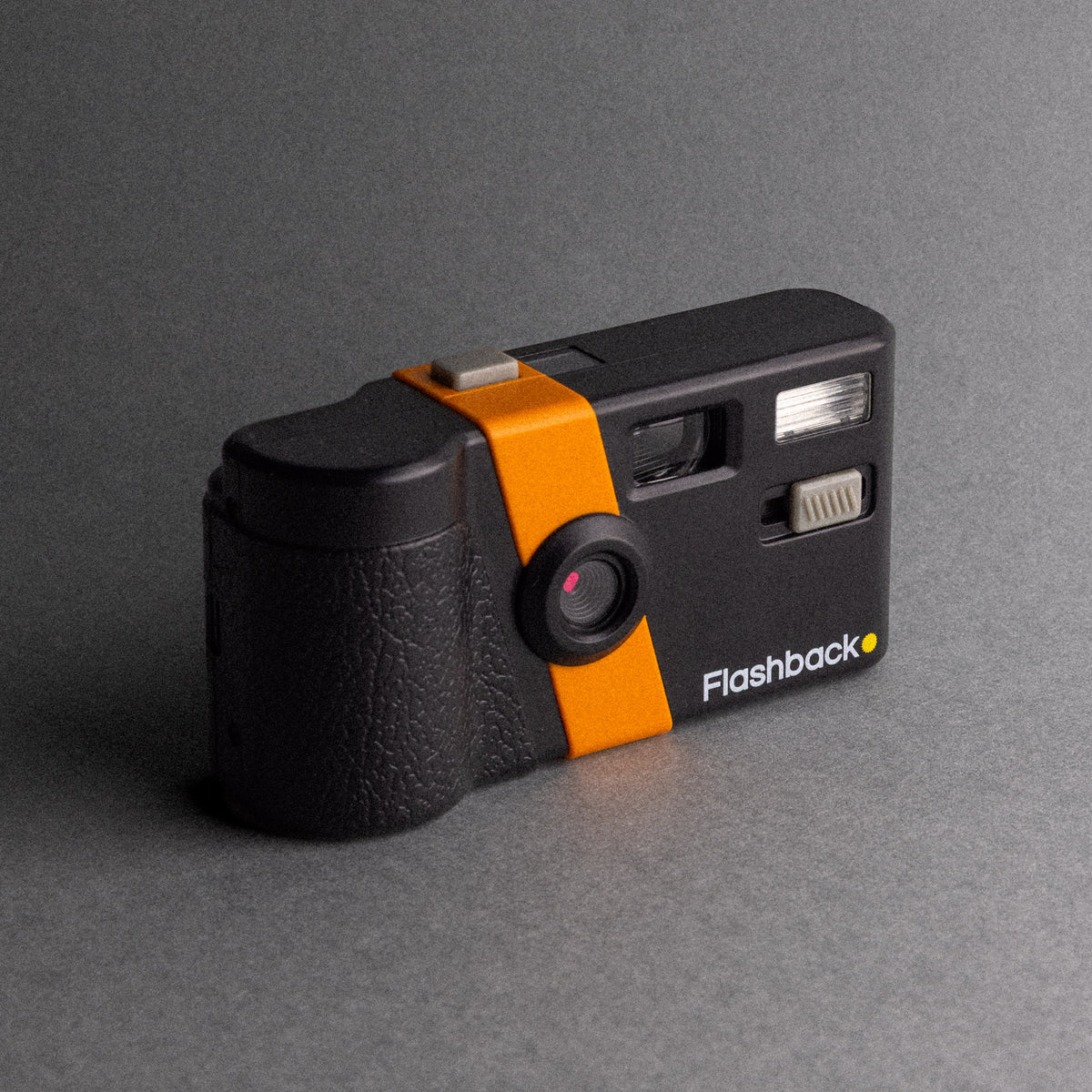
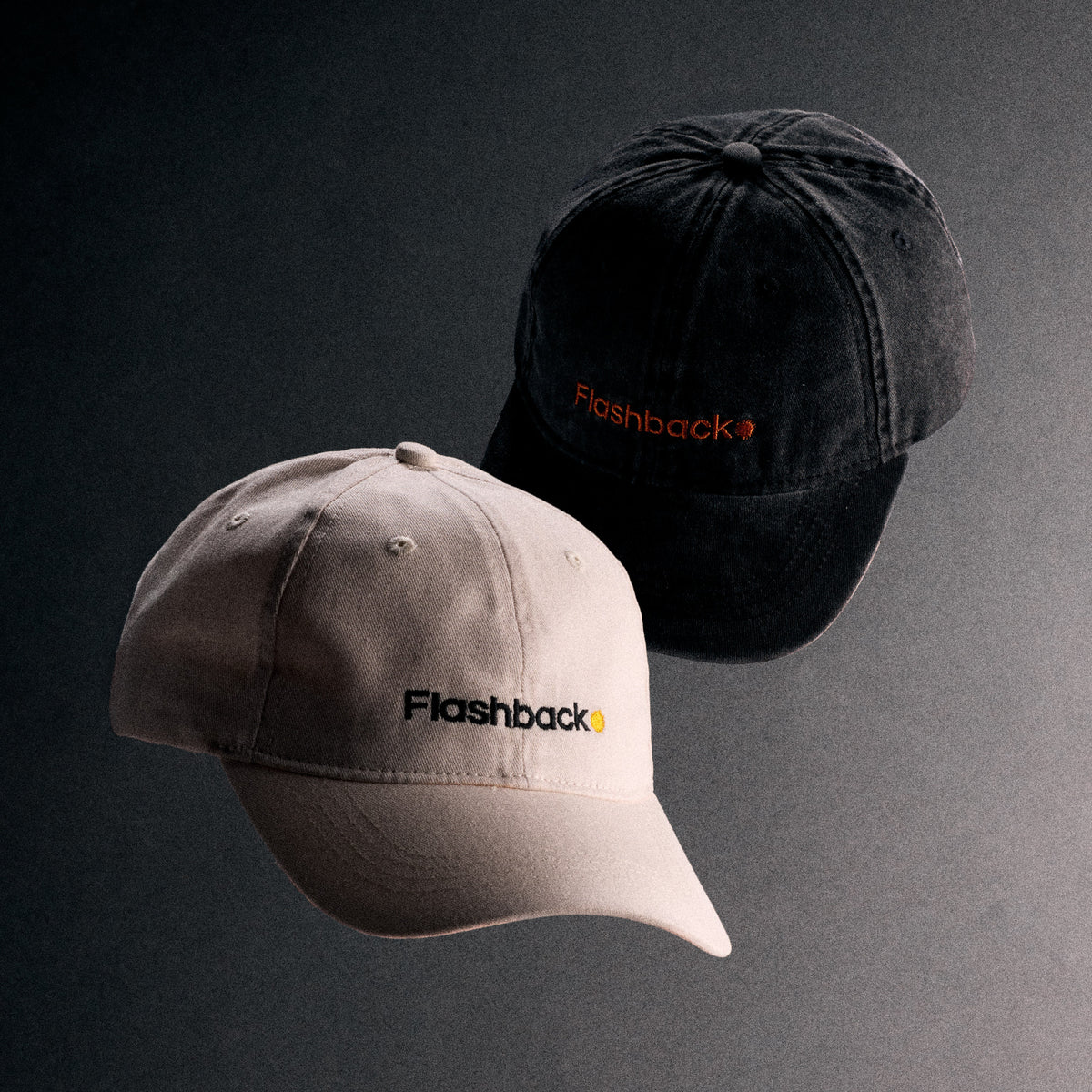
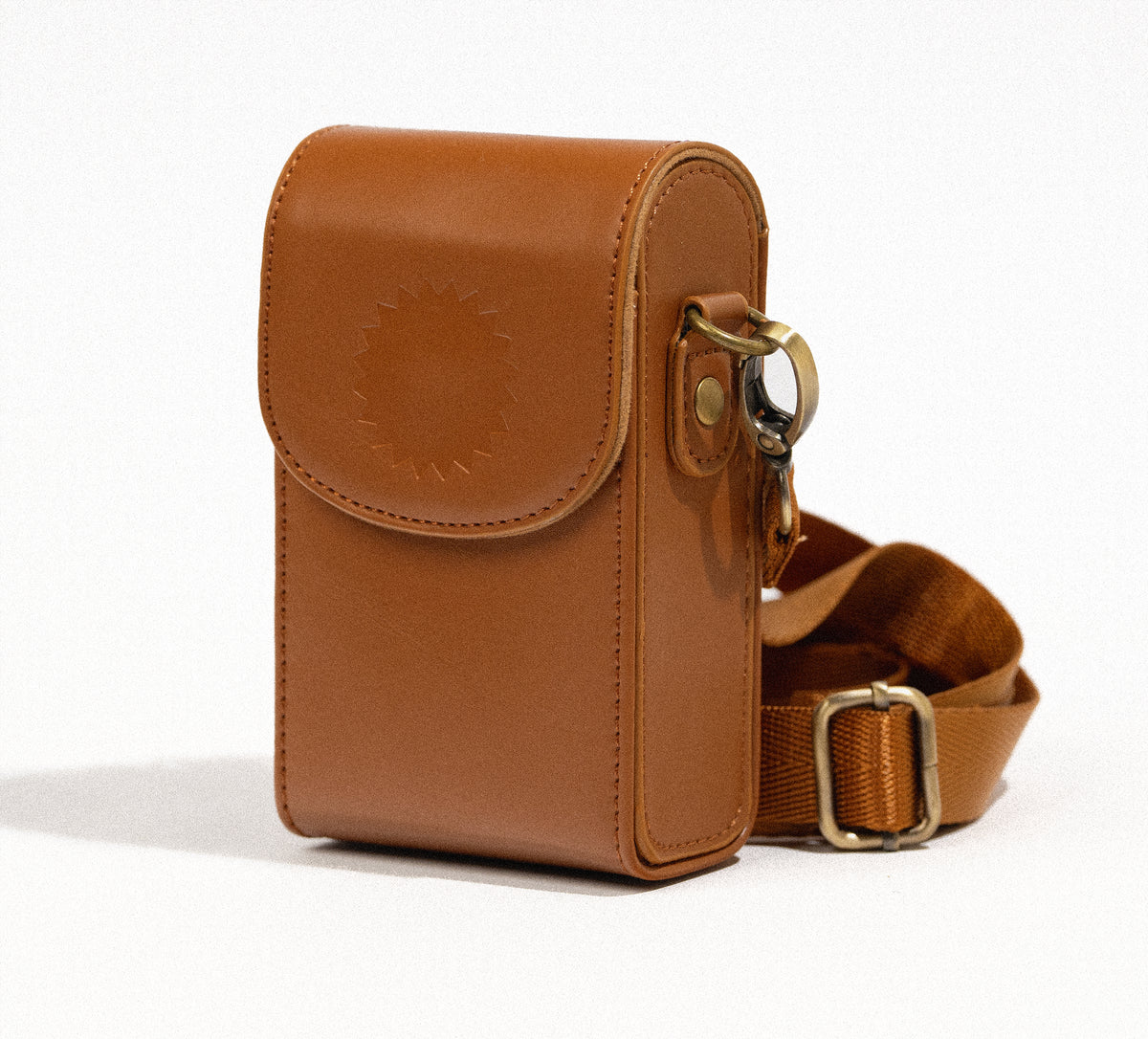
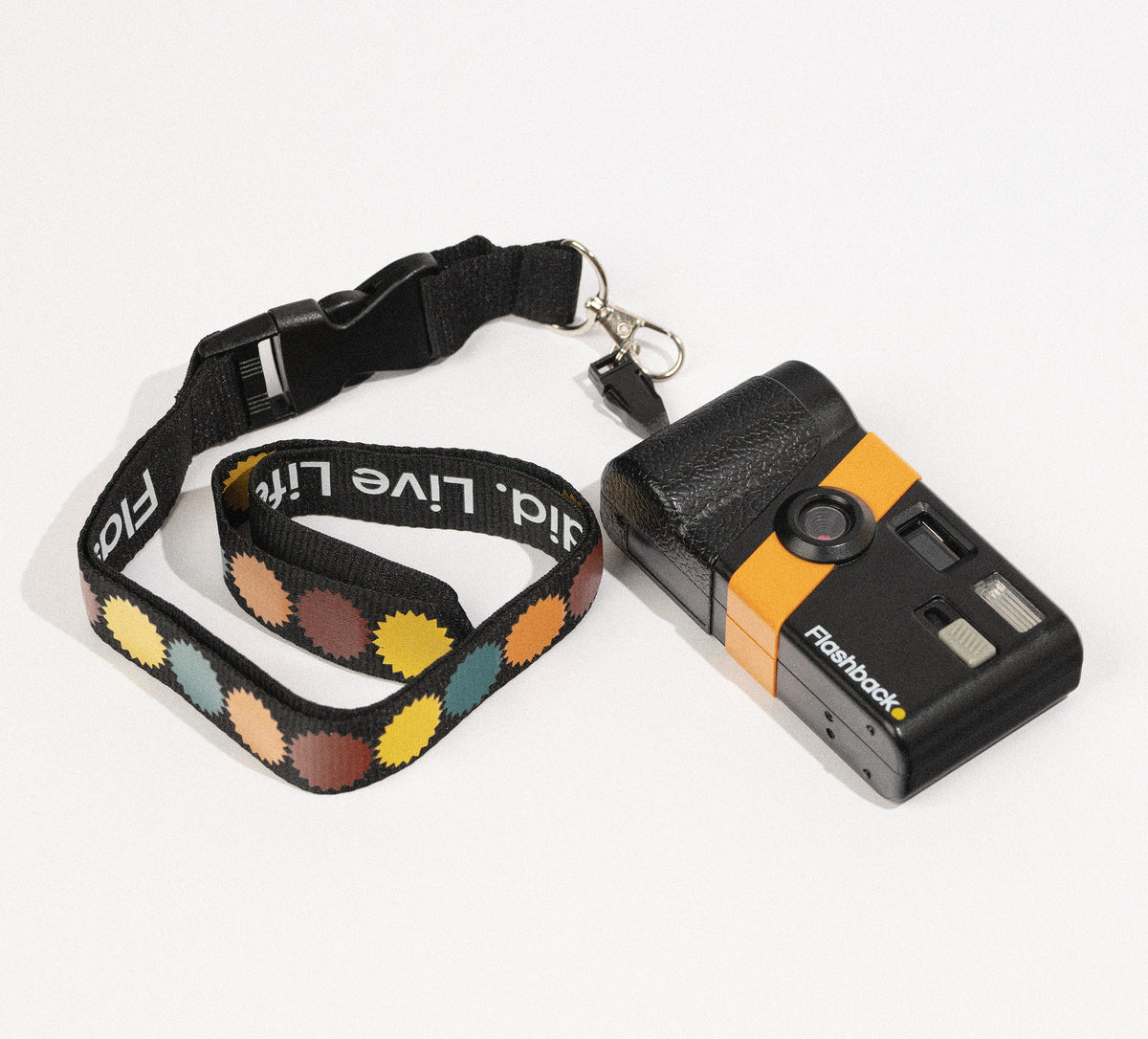
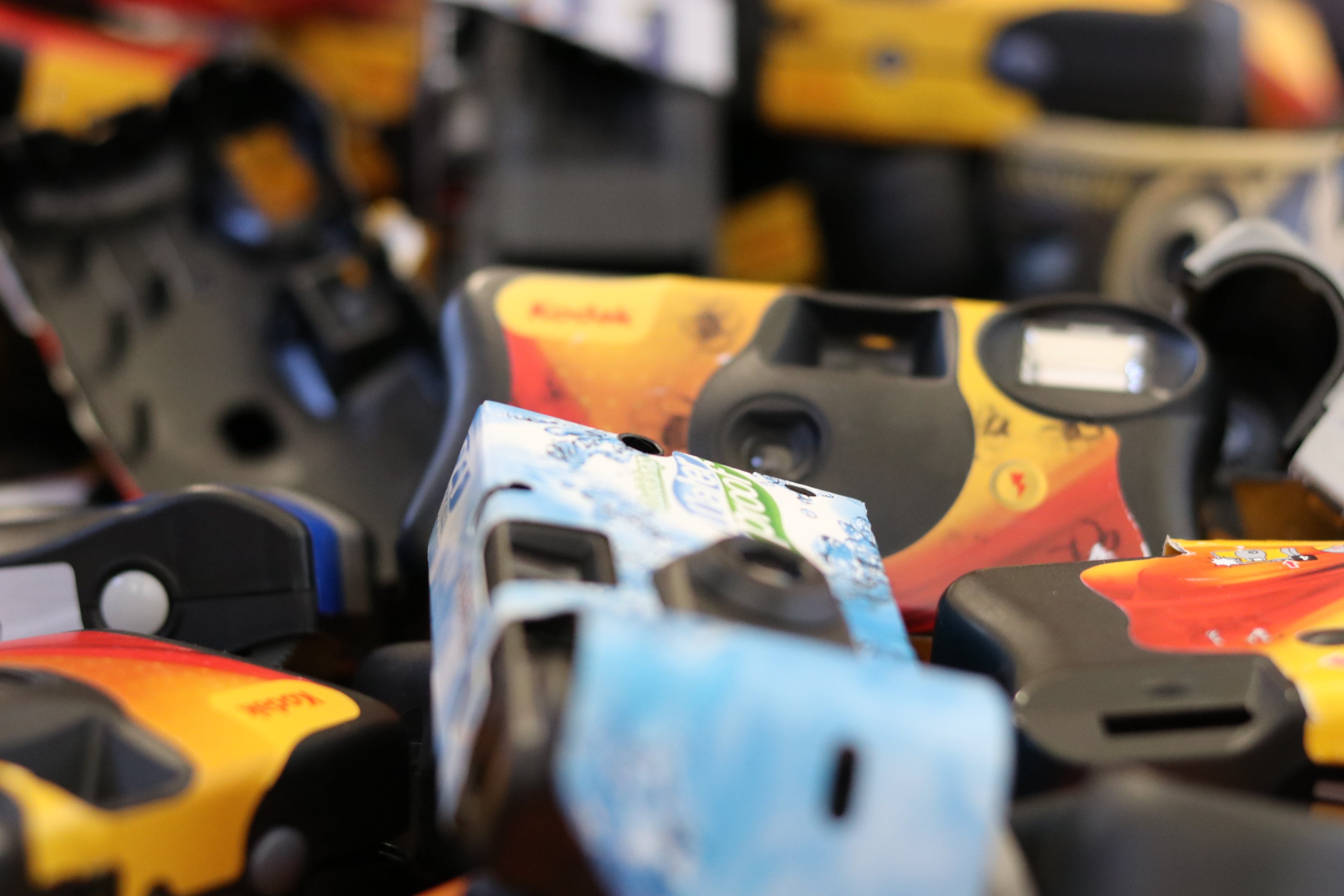
2 comments
Hello, I’m so excited for your project and I hope it will be shipped to my country “Lebanon”. If you did not know, we are going through an enormous economic crisis in my country and for me being a photography enthusiast, I will be honored if you could tak in consideration my case and help me get one of your disposable cameras with a discount or anything . I always had one (kodak) in hand when i was little, but recently i have been struggling to buy one with the high dollar rate.
Thank you for taking the time to read my message.
Chase the dream!